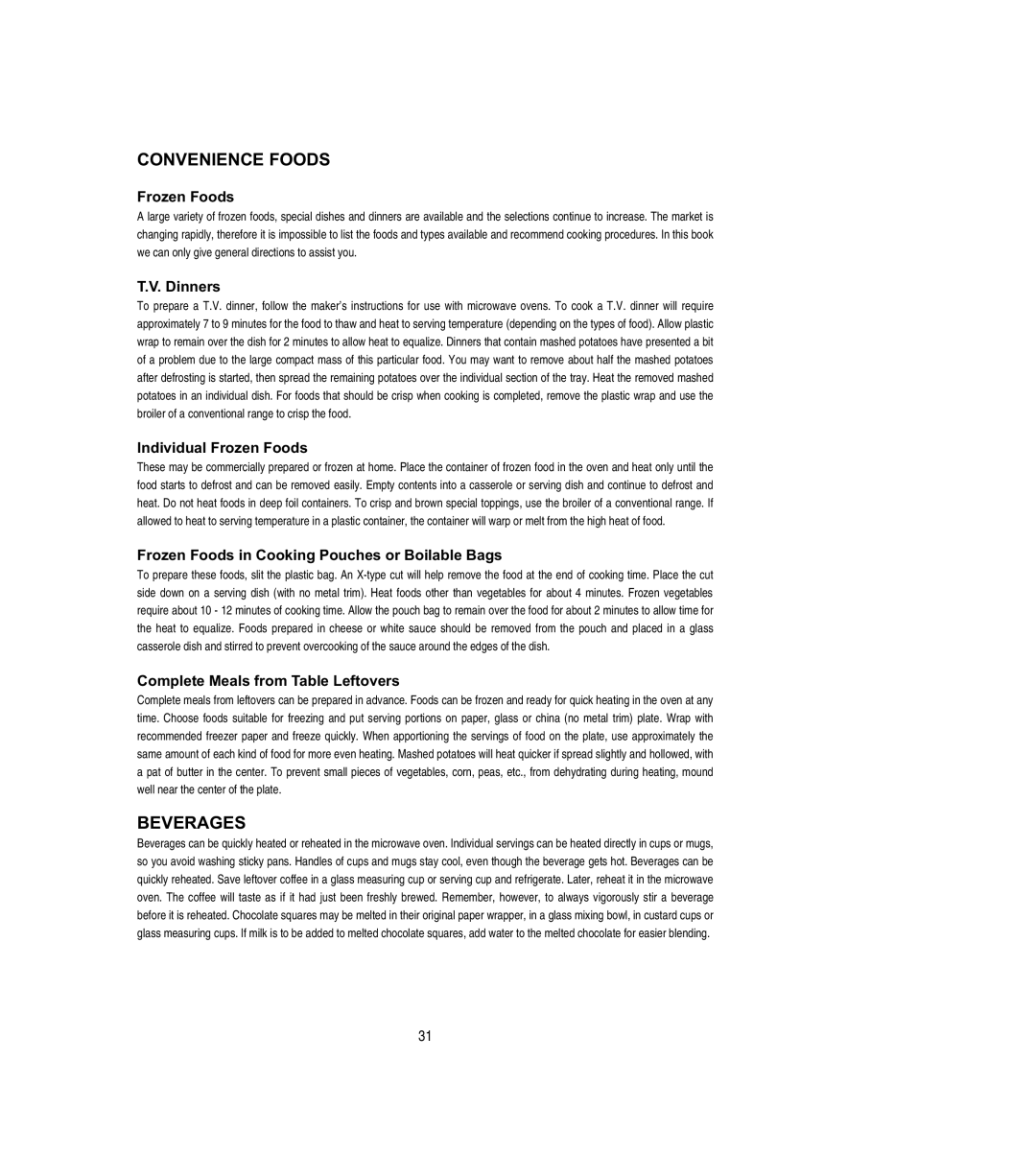CONVENIENCE FOODS
Frozen Foods
A large variety of frozen foods, special dishes and dinners are available and the selections continue to increase. The market is changing rapidly, therefore it is impossible to list the foods and types available and recommend cooking procedures. In this book we can only give general directions to assist you.
T.V. Dinners
To prepare a T.V. dinner, follow the maker’s instructions for use with microwave ovens. To cook a T.V. dinner will require approximately 7 to 9 minutes for the food to thaw and heat to serving temperature (depending on the types of food). Allow plastic wrap to remain over the dish for 2 minutes to allow heat to equalize. Dinners that contain mashed potatoes have presented a bit of a problem due to the large compact mass of this particular food. You may want to remove about half the mashed potatoes after defrosting is started, then spread the remaining potatoes over the individual section of the tray. Heat the removed mashed potatoes in an individual dish. For foods that should be crisp when cooking is completed, remove the plastic wrap and use the broiler of a conventional range to crisp the food.
Individual Frozen Foods
These may be commercially prepared or frozen at home. Place the container of frozen food in the oven and heat only until the food starts to defrost and can be removed easily. Empty contents into a casserole or serving dish and continue to defrost and heat. Do not heat foods in deep foil containers. To crisp and brown special toppings, use the broiler of a conventional range. If allowed to heat to serving temperature in a plastic container, the container will warp or melt from the high heat of food.
Frozen Foods in Cooking Pouches or Boilable Bags
To prepare these foods, slit the plastic bag. An
Complete Meals from Table Leftovers
Complete meals from leftovers can be prepared in advance. Foods can be frozen and ready for quick heating in the oven at any time. Choose foods suitable for freezing and put serving portions on paper, glass or china (no metal trim) plate. Wrap with recommended freezer paper and freeze quickly. When apportioning the servings of food on the plate, use approximately the same amount of each kind of food for more even heating. Mashed potatoes will heat quicker if spread slightly and hollowed, with a pat of butter in the center. To prevent small pieces of vegetables, corn, peas, etc., from dehydrating during heating, mound well near the center of the plate.
BEVERAGES
Beverages can be quickly heated or reheated in the microwave oven. Individual servings can be heated directly in cups or mugs, so you avoid washing sticky pans. Handles of cups and mugs stay cool, even though the beverage gets hot. Beverages can be quickly reheated. Save leftover coffee in a glass measuring cup or serving cup and refrigerate. Later, reheat it in the microwave oven. The coffee will taste as if it had just been freshly brewed. Remember, however, to always vigorously stir a beverage before it is reheated. Chocolate squares may be melted in their original paper wrapper, in a glass mixing bowl, in custard cups or glass measuring cups. If milk is to be added to melted chocolate squares, add water to the melted chocolate for easier blending.
31
